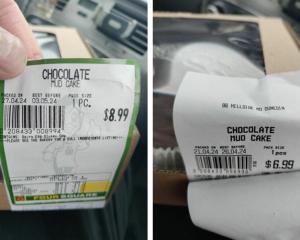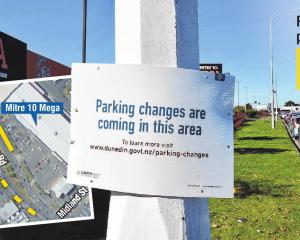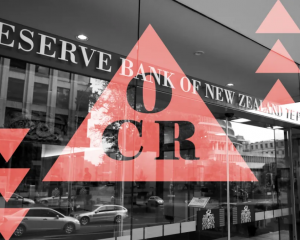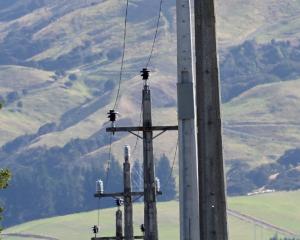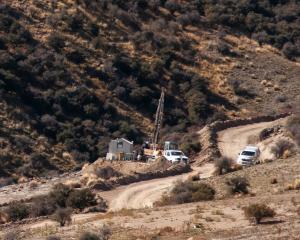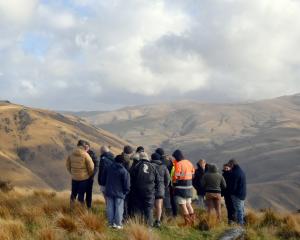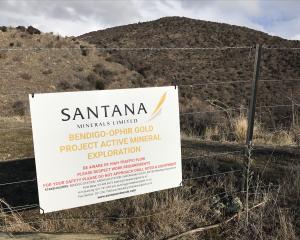As the Government prepares to sign the Trans Pacific Partnership trade agreement in Auckland next week, arguments for and against the deal have started to heat up.
Both the Government and TPP opponents are releasing information which they say proves their respective arguments.
Long-time TPP opponent, University of Auckland law professor Jane Kelsey will be in Dunedin on Friday with analyst Lori Wallach, the director of Washington-based Public Citizen Global Trade Watch.
On Saturday, TPP Action Dunedin is hosting an event in the Octagon, where opponents will call on the Government to reject the TPP.
The Government will run roadshows explaining its position, but no dates have yet been set.
Mr Wallach will talk about the realities of TPP politics in a United States presidential election year and the likelihood the agreement would not get to a vote this year, after which it would become hostage to a new administration.
Prof Kelsey will discuss the assessments of the TPP for New Zealand in the series of peer reviewed expert papers recently released.
In a statement, Prof Kelsey said there was a groundswell of opposition throughout New Zealand and in many other TPP countries to the "secretly negotiated deal''.
"The New Zealand Government's offer to host the signing continues the profound disregard for public sentiment it has shown throughout the six years of negotiations.''
However, Trade Minister Todd McClay yesterday released the National Interest Analysis (NIA) for the TPP.
The document comprehensively analysed what TPP meant for New Zealand across the entire agreement, he said.
"It finds that entering TPP would be in New Zealand's national interest, adding an estimated $2.7billion to GDP by 2030.''
The Government would submit the analysis, together with the text of the agreement, to Parliament following signature of the TPP for parliamentary treaty examination.
New Zealand had published an unprecedented amount of information on the trade agreement, Mr McClay said.
The information included 10 fact sheets released following the conclusion of negotiations on October 5.
The TPP text was first made public on November 5, together with additional information on the estimated economic benefit and details of potential costs.
The NIA document's release coincided with the release of a final version of the TPP text and a decision by Canadian International Trade Minister Chrystia Freeland to attend the February 4 signing.
Her attendance removes speculation newly elected Canadian Prime Minister Justin Trudeau might walk away from the pact negotiated at the end of the country's previous administration.
"For Parliament to fully evaluate the merits of the TPP and for consultations to continue, Canada needs to stay at the table with other TPP countries. Not attending would mean withdrawing from the TPP altogether, even before Canadians have had the opportunity to fully debate its implications,'' she said.
The NIA argued that the Treaty of Waitangi clauses in the TPP were the same as in other free-trade agreements and nothing in the TPP prevented the Crown from meeting its obligations to Maori, including the Treaty of Waitangi.
The TPP also, for the first time in such an agreement, created a process which might include taking into account information related to traditional knowledge.
"This is an important step forward for the protection of traditional knowledge,'' the NIA says.
On the much-criticised investor-state dispute settlement provisions (ISDS), allowing investors to take governments to arbitration, the NIA noted agreements relating to matters such as land, water or the delivery of correctional, healthcare or other social services were not covered by investment agreements and were not subject to ISDS.
ISDS provisions only related to the investment chapter and not other parts of the TPP text.
The TPP also required the tribunals hearing ISDS disputes be open to the public, their decisions be published and expert and other witnesses be able to be called to give evidence.
Prof Kelsey said the NIA was a "totally predictable'' cheerleading exercise, talking up the supposed gains and largely ignoring the huge downsides of the TPP.
At a glance
• Meeting in Dunedin on Friday to oppose the Trans Pacific Partnership.
• Rally in Dunedin's Octagon on Saturday to call on the Government to abandon the trade agreement.
• TPP will be signed in Auckland on February 4.
• National Interest Analysis released yesterday.



